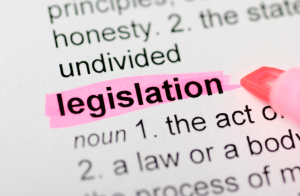Legislative Findings: Brookings Builds on U.S. Privacy Legislation Report
Today, the Brookings Institution released model legislative findings for federal privacy legislation, intended to accompany the model privacy legislation they published in June, 2020. The findings are designed to motivate discussion and to reconcile differences between two of the leading proposals: Sen. Maria Cantwell’s (D-WA) Consumer Online Privacy Rights Act and Sen. Roger Wicker’s (R-MS) SAFE DATA Act. The legislative findings also provide useful framing for the recommendations and options outlined in Brookings’ Report, “Bridging the gaps: A path forward to federal privacy legislation.”
// WHY LEGISLATIVE FINDINGS MATTER
Many federal and state laws begin with a non-binding “legislative findings” section that outlines the various goals that legislators are trying to achieve through the legislation. The articulation of the foundational principles and aims of privacy legislation is powerful and important for a number of non-operational reasons. These include building support among the public and members of Congress, declaring American values to the world, informing judicial and agency interpretation, and clearly expressing grounds to uphold the legislation against constitutional challenges.
Despite these reasons, ten of the dozen proposals for comprehensive privacy legislation introduced in the 116th Congress excluded statements of legislative findings. In contrast, the EU’s General Data Protection Regulation (GDPR) is accompanied by 173 recitals that explain and offer commentary to the law.
// WHAT THE BROOKINGS PROPOSED LEGISLATIVE FINDINGS CONTAIN
The legislative findings proposed by the Brookings Institution are not intended to be set in stone, but instead to provide a comprehensive outline for Congress and stakeholders to consider as they continue to draft privacy legislation. They also provide a framing for the detailed recommendations outlined in the recent report, “Bridging the gaps: A path forward to federal privacy legislation,” which advocates for a risk-based approach, tailored preemption and enforcement, and individual rights aimed at recognized privacy harms.
In summary, the proposed legislative findings contain (1) a statement of the legal, moral, and historical foundations of privacy in America; (2) technology developments that underlie the need for legislation; (3) the effects of these developments that privacy legislation aims to address; (4) how privacy legislation aims to address these effects; and (5) a set of policy declarations that express key governmental objectives.
- You can read the model legislation with legislative findings in full here.
- You can read Brookings’ full release for the legislative findings here.
- You can read the Brookings report from June 2020, here.
- You can read FPF’s brief analysis of the key areas of debate contained in the Brookings report here.
This year, FPF has observed considerable progress among stakeholders towards developing nuanced and workable solutions in key remaining areas of debate — including enforcement and preemption. This progress has been promoted by important legislative and judicial developments in the states and abroad, as well as the accelerated adoption of technologies for remote learning, work, and leisure activities during the COVID-19 pandemic. With all this in mind, we are optimistic that the new Administration will create fertile ground for the enactment of bipartisan privacy legislation in the 117th Congress.

